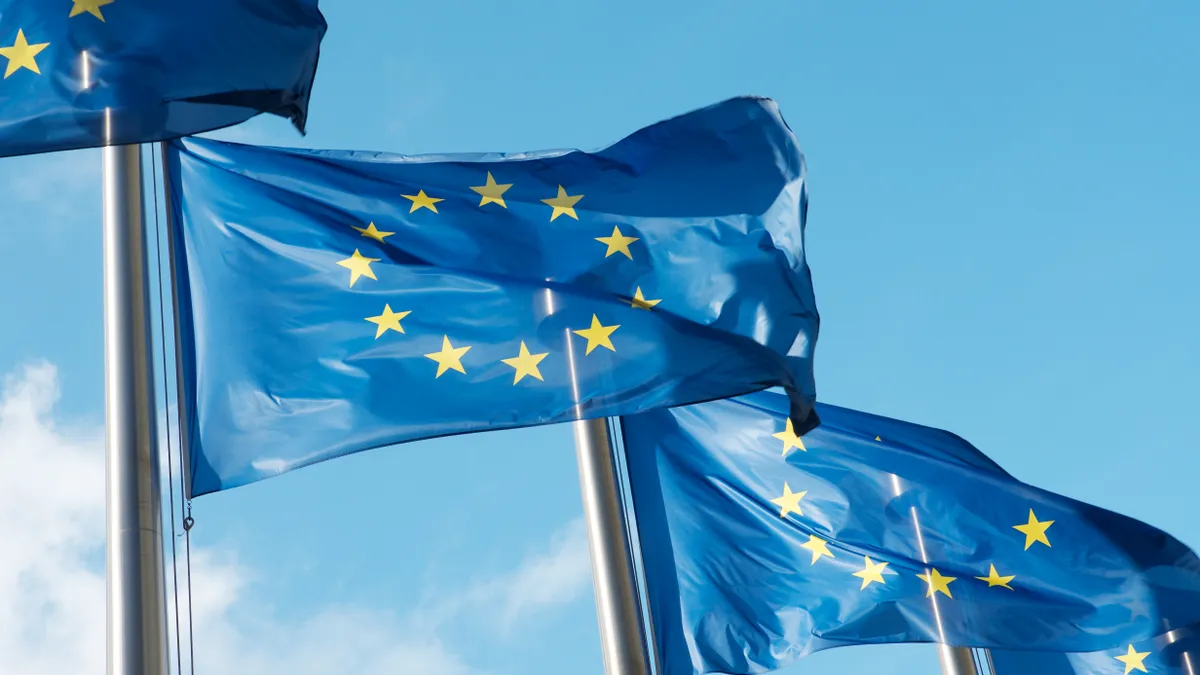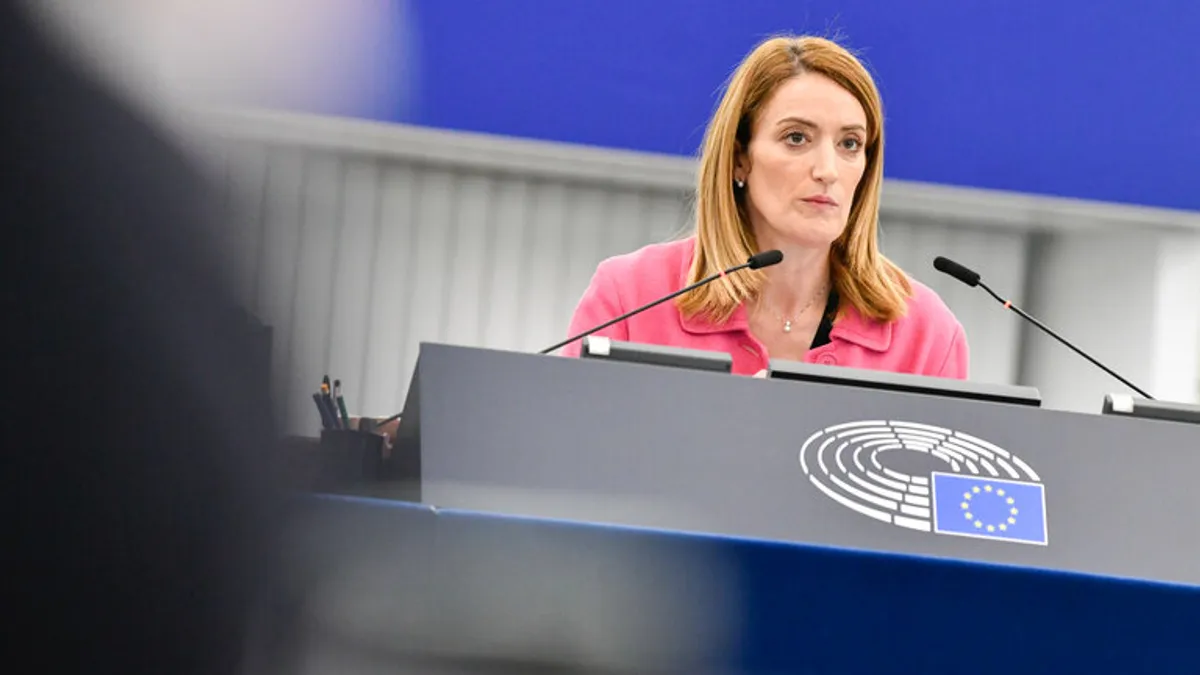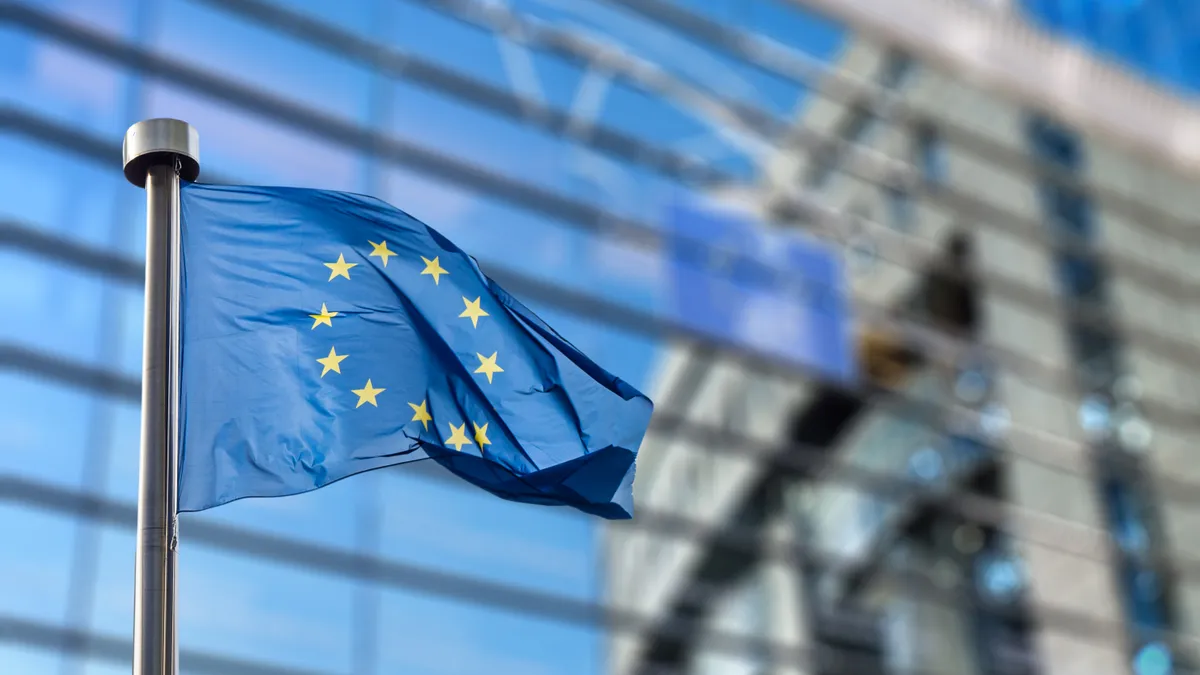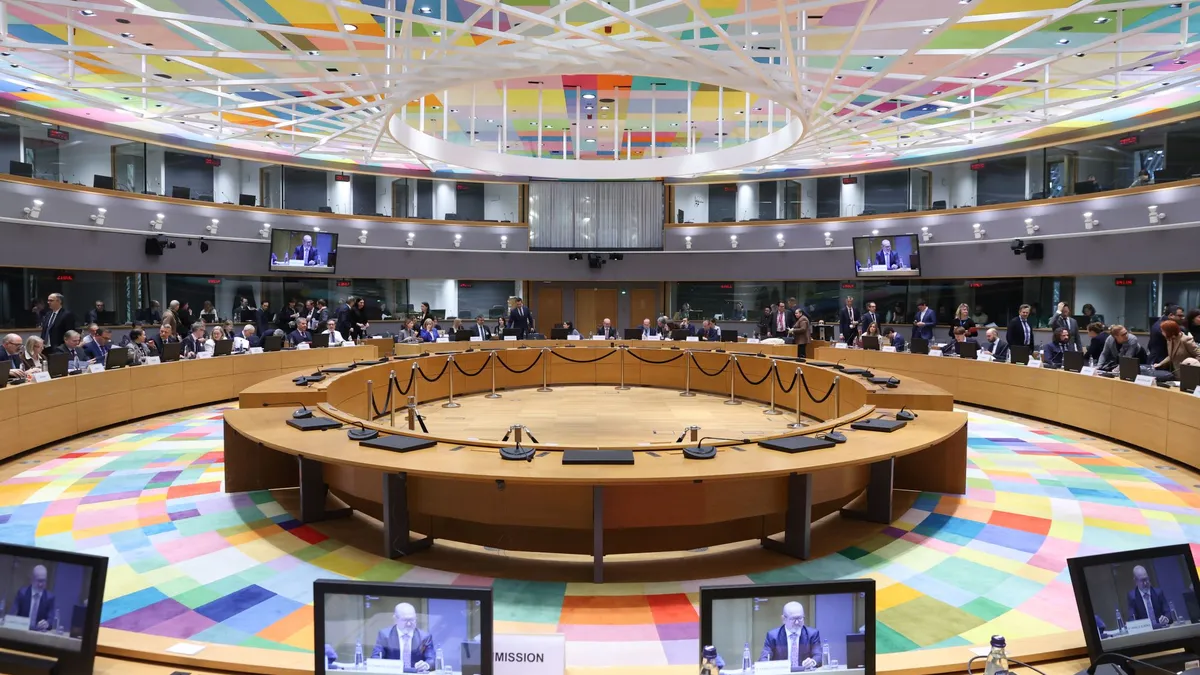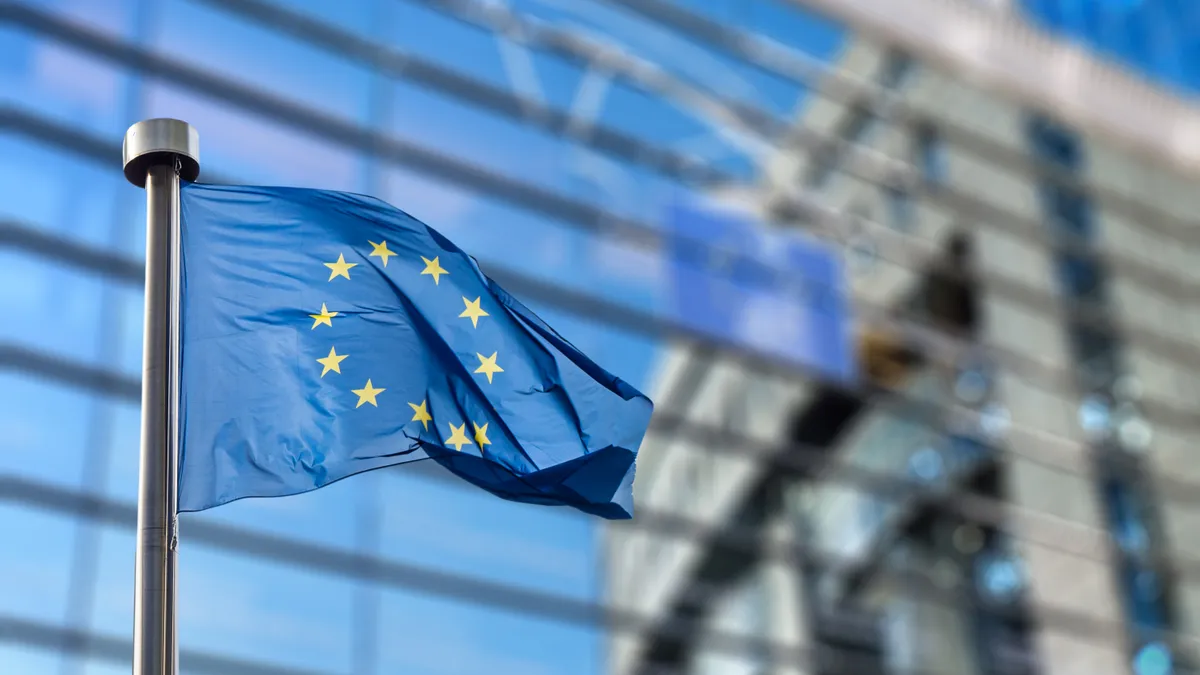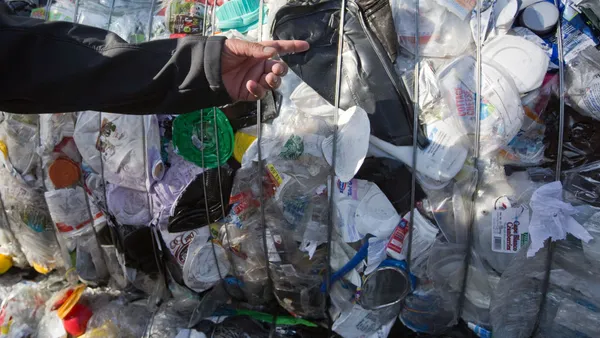The European Council, comprised of 27 members states, on Monday reached a “general approach” on new EU-wide packaging rules, the next step to further negotiations in 2024. This follows European Parliament adopting its own position in November.
The proposal seeks to make all packaging recyclable and minimize substances of concern. It sets labeling requirements, reuse targets and single-use restrictions. It aims to ensure packaging is recycled “to the highest possible standard” and sets criteria for extended producer responsibility systems. The Council said it maintained the scope of the European Commission’s proposal, covering all packaging across material types and all packaging waste, whether from consumers, industrial settings or otherwise.
The Council agreed with the Commission’s headline targets for reducing packaging waste 5% by 2030, 10% by 2035 and 15% by 2040, from a 2018 baseline. The Council introduced the possibility for member states to set packaging waste prevention measures exceeding those minimum targets.
The Council noted that under the new rules, member states must set up deposit return systems for single-use plastic bottles and metal beverage containers that achieve separate collection of at least 90% annually by 2029. The Council added an exemption from that requirement to introduce a DRS, for member states with a rate of separate collection exceeding 78% by 2026.
The Council said that in regard to recyclable packaging, “member states agreed that packaging will be considered recyclable when designed for material recycling, and when the waste packaging can be separately collected, sorted and recycled at scale.” It also said that in regard to targets for minimum recycled content in plastic packaging, by 2034 the Commission would have to review the implementation of 2030 targets and assess the feasibility of 2040 targets. Reuse and refill targets would also have to be reviewed.
On compostability, the Council said that tea bags and sticky labels on produce must be compostable; that means member states could require other packaging such as coffee pods to be compostable under specific conditions.
This is some of what stakeholder organizations said in response, as they look ahead to next steps:
European Bioplastics
The organization said Monday it “regrets the position adopted today by the Environment Ministers in the Environment Council, deeming the failure to recognise the role of bioplastics a missed opportunity.” Roberto Ferrigno, head of EU affairs at EUBP, described the general approach as “weak,” saying it fails to recognize the value of compostable applications and hinders bio-based innovative solutions.
European Container Glass Federation
The organization noted in a press release that weight-based packaging waste reduction targets “will inadvertently encourage a shift from circular materials like glass to lighter but less recyclable or reusable materials;” that “distinctive packaging designs are under threat;” that member states have diluted recyclability measures; and that member states limited mandatory separate collection targets to only some packaging formats under deposit return.
“Unlike the European Parliament, the Council of the EU has failed to recognise the contribution that circular packaging can make to competitiveness and sustainable growth in in their position on the Packaging & Packaging Waste Regulation,” the group said.
Europen (The European Organisation for Packaging and the Environment)
The agreement “fails to deliver a strong harmonized regulatory framework” for packaging sustainability, Europen stated in a LinkedIn post, adding that “the text adopted by the Environment Ministers introduces many national derogations and opportunities for unilateral restrictions by Member States.”
Flexible Packaging Europe
The organization “welcomes the improvements on deadlines for recyclability requirements, which broadly align with the European Parliament’s proposed amendments,” according to a statement. Other “encouraging” signs included the Council recognizing that packaging designed for recycling must be collected for recycling, and that incinerating or landfilling that packaging not be allowed.
Among multiple concerns, the organization said that member states seeking the possibility to postpone the achievement of 2030 recycling targets “sends a signal to investors that governments are not fully committed neither to the EU’s transformation to a circular economy, nor to ensuring recycling at scale of all packaging that is Designed for Recycling.”
Additionally, the group said “the EU Single Market for packaging and packaged products is at risk as Member States would be allowed to maintain or introduce their own sustainability requirements.”
Unesda (Soft Drinks Europe)
The organization expressed disappointment over perceived weakening of the deposit return system approach. “Even though Member States secured the obligation for the mandatory rollout of DRS, lowering the collection threshold granting an exemption from the DRS obligation is clearly a step back in the efforts to improve the collection of beverage packaging in the EU,” said Nicholas Hodac, director general of Unesda.
The organization continues to advocate for putting reusable models in place “when they bring more environmental benefits than their recyclable counterpart," and member states “missed the opportunity to acknowledge the complementarity of reuse and recycling by failing to support the creation of exemptions mechanisms.” Unesda was also hoping beverage manufacturers would gain priority access to food-grade recyclates.
Reloop
Reloop also expressed disappointment over lowering the DRS thresholds, with CEO Clarissa Morawski saying “this will most certainly slow down the trajectory of new DRS implementation and possibly for some member states, creating an opportunity to delay or even opt out even though their recycling stats are questionable.” But Reloop said it was pleasantly surprised by “broad support for reuse, which is very positive given the near obliteration of the targets and restrictions which took place in the Parliament Plenary last month.”
Zero Waste Europe
The group acknowledged in a press release the Council’s “watered down” position as “an improvement over the backwards position of the Parliament, setting a strong foundation for upcoming negotiations in the trilogues.” ZWE pointed to opposition from Italy and Finland as having led to additional exemptions to reuse provisions.



